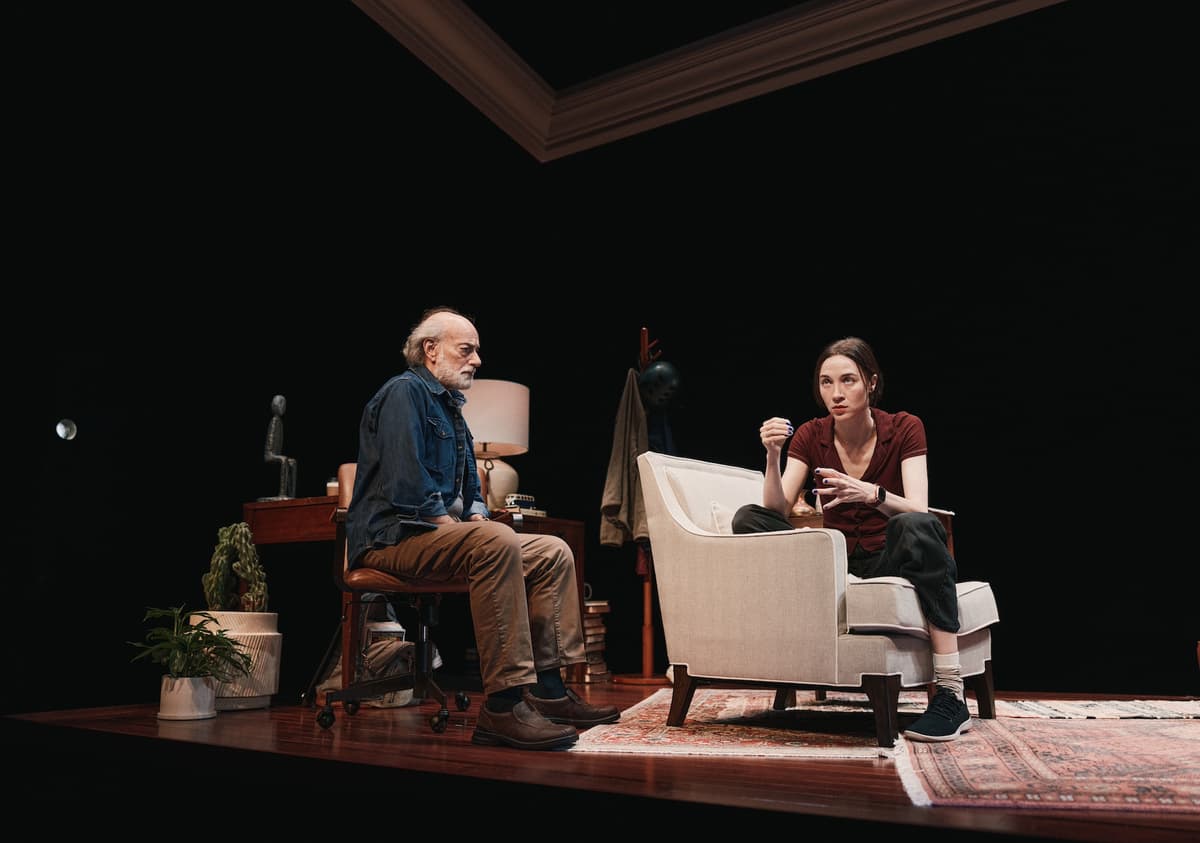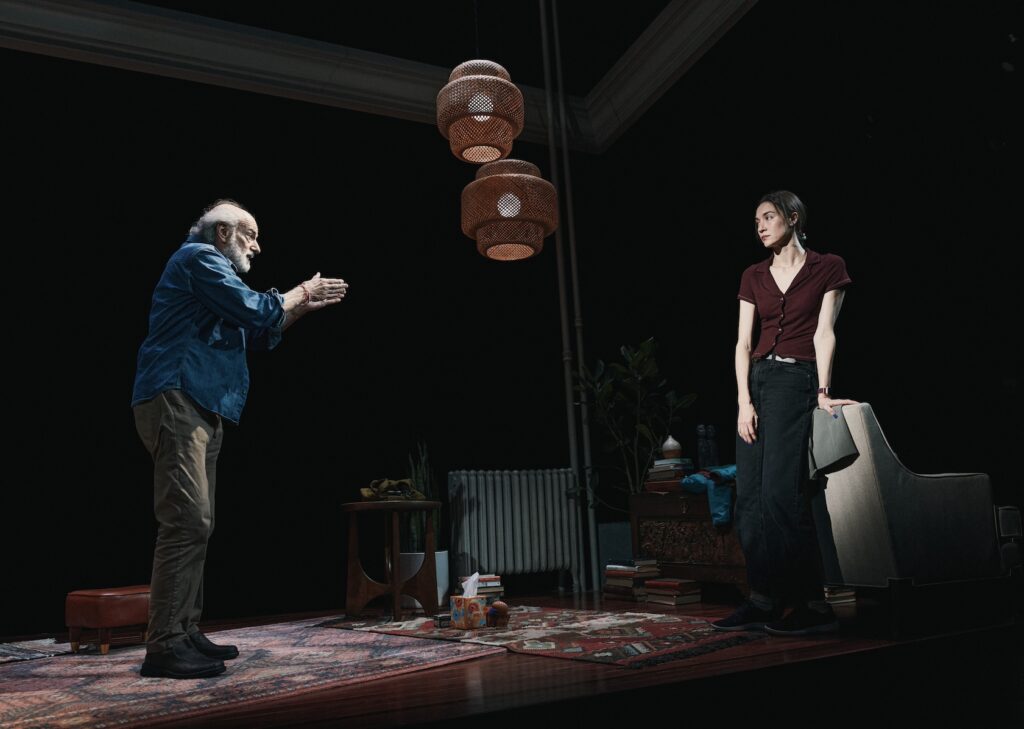With Mesmerizing Performances by Sydney Lemmon and Peter Friedman, Broadway’s ‘Job’ Keeps Us on the Edge of Our Seats
‘Job’ is a scathing and often funny critique of the social and economic forces that have polarized us in recent years, raising astute and disturbing questions about how both of the characters may have exploited or been exploited by the modern world.

Don’t be deceived by the cozy set that Scott Penner has designed for the Broadway premiere of “Job,” a crackling, searing new play by Max Wolf Friedlich. Chairs, lamps, and plants are scattered about the stage, representing the office where Loyd, a baby-boomer psychologist, will meet with the only other character, a younger woman named Jane.
Jane is there under duress: Having lost her prestigious position at a tech conglomerate after a video of her having a nervous breakdown at work went viral, she needs Loyd’s permission to return to the firm. “I’m here because of my job,” she notes flatly. “I’m required to be here.” She also insists, “I don’t need to be in therapy.”
On the last point, at least, Jane — a tortured overachiever, played with both lacerating wit and palpable empathy by a mesmerizing Sydney Lemmon — does not present a convincing argument. From the shocking tableau that opens “Job” right through to its excruciating final moments, Jane keeps us on the edge of our seats; and by the end, Loyd, portrayed here by the great character actor Peter Friedman, has cause to worry far more than we do.
I first saw “Job” last September, when it was produced on a smaller stage downtown, with the same actors and director, Michael Herwitz. This time, knowing how things would turn out, I was not as titillated by the breathless suspense and twists informing the 80-minute piece. The jarring bursts of color that mark Mextly Couzin’s lighting at key points, and the even more disturbing audio sequences that pop up — sound designer Cody Spencer is new to this production but works in the same spirit as his predecessors — struck me at times as overzealous foreshadowing.

Still, the pungent, probing intelligence of both Mr. Friedlich’s writing (the script has been only slightly tweaked) and the performances here proved just as powerful. In lesser hands, Loyd and Jane could have easily devolved into clichés: respectively, a hippie with a degree from Berkeley and a fondness for making his own jewelry, and a Gen Z upstart or young millennial who emphasizes her advantages as a white woman — “It’s a privilege to suffer as much as I do,” she declares — while dismissing Loyd’s experience, and stressing the damage wrought by his peers.
“You villainize us, because tech bros and hippies are at war,” Jane observes. “And we are winning.” Loyd counters, drily, “Well, historically our kind is not the best at fighting wars. … Perhaps both ‘cultures’ are centered on pleasure — an immediate, self-involved pleasure. Perhaps we’ve traded psychedelics for a slow drip of dopamine that comes from these devices in our pockets, the difference being we’ve gone from exploring our own minds to having our minds harvested for market research.”
Digital technology figures heavily into their debate, with Jane arguing, hilariously, “People do bad things, not phones.” As it turns out, she has a point: Mr. Friedlich is less interested in blasting generational vices than he is in exploring the different ways human beings try to exorcize their demons, and as we learn before the play has run its course, Loyd may have substantial demons of his own.
“Job” is, at the same time, a scathing and often funny critique of the social and economic forces that have polarized us in recent years. As I noted in my review of the earlier production, Mr. Friedlich raises astute and disturbing questions about how both of his characters may have exploited or been exploited by the modern world.
“We’re all alone,” Jane tells Loyd at one point. In fact, though, “Job” gains its power in examining, with biting humor and keen insight, our endless struggle to co-exist, to find purpose and peace both within ourselves and with those around us.

